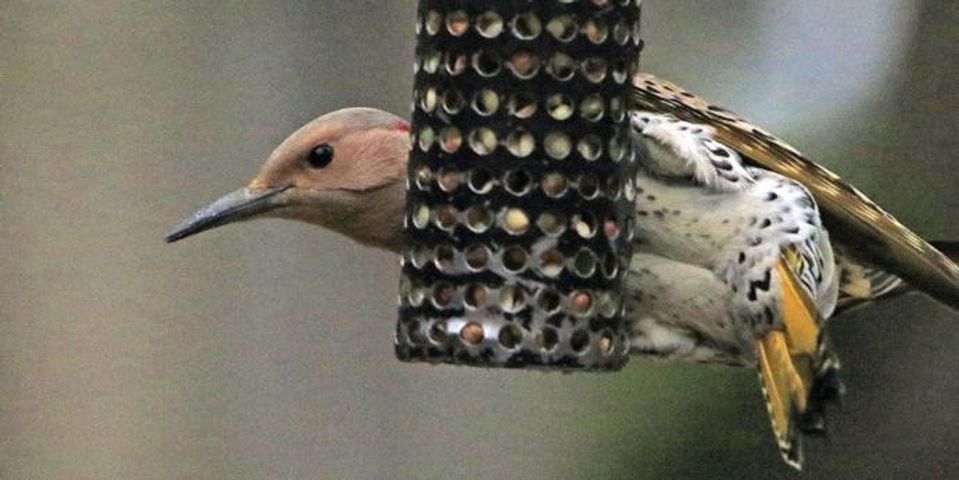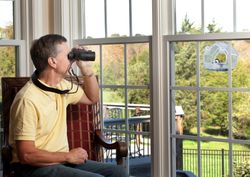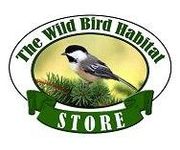How Birdwatching Can Improve Your Mental Health In Times Like These

Many adults are being required to stay at home, move their work space home, or remain at home to watch the children as schools close due to Corvid 19. Life as we know it has been turned up-side and is creating uncertainties that can cause a lot of stress and anxiety for people.
But did you know research has shown just watching nature for 15 minutes a day can help relieve those feelings of depression, stress, and anxiety,
So if you suffer from anxiety or depression, or you're looking for ways to manage stress, putting up a bird feeder in your yard is a simple but surprisingly helpful option. Some recent studies have shown that bird feeding and bird watching, also called birding, can make a measurable difference in your overall stress level. For many people, this act aids in curbing certain mental health ailments. This is beneficial for your mood, your health, and your quality of life in general. It has been shown to help children with behavioral problems, ADAH, even obesity. The benefits for children and adults is indisputable. Below, learn how birdwatching can improve your over all mental health.
How Birdwatching Can Help Improve Your Well-Being
There is a wide range of studies going back many years that show that being in nature lowers stress. More recently, a group of researchers looked specifically at the effect of observing birds, along with trees and shrubs. They found that areas with higher total bird populations during the day correlated with better mental health. Their survey covered a wide range of people from different backgrounds, suggesting that this effect is general, not just specific to a few people who enjoy birds. If placing a bird feeder in your yard attracts more feathered critters, then you'll get to see and interact with them more often and feel happier overall.
One possible explanation for this effect is the attention-restoration theory. This is the idea that attention is divided into two different activities, intentionally paying attention and having your attention involuntarily caught by something that’s naturally interesting or important. The latter is easier, so spending time in inherently interesting environments or activities, like nature, is restful and makes it easier to concentrate intentionally afterward. This effect is associated with lower levels of stress, depression, and anxiety.
How to Bird Watch
 There are plenty of ways to see birds during your day, and some of the methods are simple, and others are more involved. If you want to get serious about birding as a hobby, you could research local species, take nature walks, and invest in binoculars and field guides. But if you'd rather start small, you could add bird feeders, birdhouses, and birdbaths to your yard. These features attract feathered visitors and even encourage them to remain in the area so you'll see both a larger number and a greater variety of birds right outside your windows. If this hobby turns into a passion, you can take trips to local nature centers and wildlife areas, or other places across the country to see different kinds of birds. You can also join local or regional Audubon clubs and bond with others who share your interests.
There are plenty of ways to see birds during your day, and some of the methods are simple, and others are more involved. If you want to get serious about birding as a hobby, you could research local species, take nature walks, and invest in binoculars and field guides. But if you'd rather start small, you could add bird feeders, birdhouses, and birdbaths to your yard. These features attract feathered visitors and even encourage them to remain in the area so you'll see both a larger number and a greater variety of birds right outside your windows. If this hobby turns into a passion, you can take trips to local nature centers and wildlife areas, or other places across the country to see different kinds of birds. You can also join local or regional Audubon clubs and bond with others who share your interests.
For quality backyard bird feeders, bird houses, and other birding supplies visit the Wild Bird Habitat Store in Lincoln, NE. Since 1993, they've provided a wide selection of birding products in Lincoln, Lancaster County and beyond. They have 21 varieties of quality bulk and pre-packaged wild birdseed, GMO free and pesticide free. Wild Bird Habitat will help you choose the right bird feeder and wild bird feed to attract the birds you want. They can educate you about birds or the area's other wildlife. To get started, call (402) 420-2553 or visit their website. There you will find information about the seven basic bird feeders, types of wild bird feed to use, and which birds you can expect to attract.
The Wild Bird Habitat Stores has two locations in Lincoln, NE. In north Lincoln at 4900 Dudley Street or south in the Alamo Plaza at 5601 S 56th Street, where they’ve been connecting families with nature right in their own backyards for the past 27 years.
Additional Reading “Last Child in the Woods” by Richard Louv – Saving Our Children from Nature-Deficit Disorder (Available on Amazon)
About the Business
Have a question? Ask the experts!
Send your question

